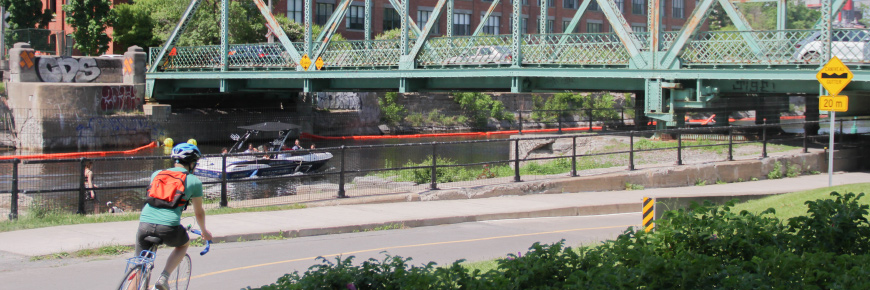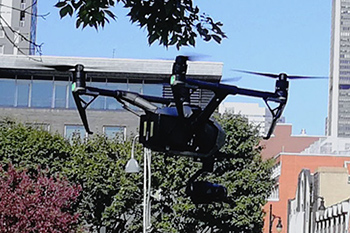
Visitor safety
Lachine Canal National Historic Site
Magnet-fishing
Magnet-fishing is strictly forbidden in Parks Canada's historic canals.
Nautical security
Historic Canals Regulations, Small Vessels Regulations and Collision Regulations are in force in all historic canals.
Ticks and Lyme disease
The risk of Lyme disease infection is significant in the Lachine Canal area. Find out how to recognize the blacklegged tick.
Avian Flu
Avian influenza is a disease transmitted by wild birds across Canada, but it can affect all species of birds. Learn to recognize the signs of infection.
Cyanobacteria
Cyanobacteria are occasionally present in the Lachine Canal. Recognize them and know what to do in case of contact.
Sick, dead or injured animals
Are you in the presence of a sick, dead or injured animal at the Lachine Canal National Historic Site? Here are the safety instructions to follow.
Visitor safety is a top priority for Parks Canada and the Agency takes all the necessary measures to ensure that visitors of the Lachine Canal National Historic Site have a safe and enjoyable experience, in addition to protecting the heritage value of the site.
The management measures put in place by Parks Canada, such as the presence of field personnel and signage, help preserve a sound atmosphere while making the cohabitation between the different users of the site more harmonious. Caution is always advised to help maintain the safety of the site and reduce the risk of incidents.
For general information about how to stay safe when enjoying the outdoors, visit AdventureSmart.
Use of drones

Lachine Canal National Historic Site is located in controlled airspace. While the use of drones as a popular hobby, all Parks Canada places are “no drone zones” for recreational use. If you want to use drones for non-recreational purposes, please visit the "Use of drones at Parks Canada places" page on the Parks Canada website.
Parks Canada wishes to remind users to be cautious at all times when using the banks of the Lachine Canal in the winter, as the snow-covered surfaces can be slippery. For areas offering maintained trails in winter, please visit the Winter Activities section. During the winter
The use of shoes adapted to winter conditions can help to reduce the risk of falling. Avoid crossing railings and keep at a safe distance from the canal walls to avoid slipping.
For safety reasons, it is forbidden to venture on the ice that forms on the Lachine Canal in winter and to practice ice skating.
In case of emergency
Call 911- Date modified :